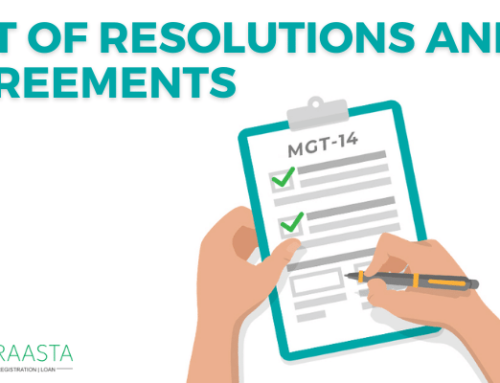Legal Definition of the Board Meeting
Contents
A Board Meeting is a meeting of the board of Directors of a Company in which the various policies of the company and major decisions for the future concerns are discussed. The decisions or ratify action are to be taken by the Board on behalf of the company. The company’s Articles of association contains the powers of the board. At Board meeting, all the proceedings are governed by the company’s articles as well as by any rules made by the Directors themselves by virtue of any powers conferred on them by the articles. It is not essential for all the directors to be presented at a meeting if, as is usually the case, the articles provide that a specified number will constitute a quorum. When a quorum is not that prescribed then a majority of the board is required to attend.
Read more: Appointment of Director as per Companies Act 2013, Requirements for becoming the director of a Company
Requirements during the Board Meeting
Following are the requirements during the Board Meetings:
- The chairperson shall take a roll call where every director who is participating in video conferencing shall state Name, Location, and confirmation of receipt of agenda and non-presence of any person other than the concerned director.
- Company Secretary or Chairperson shall inform the Board about the persons who are present for the said meeting other than the directors with the request of the chair and confirm the presence of a quorum.
- All participant shall identify himself for the record before speaking on any business item on the agenda.
- If a motion is objected to and is in a need to put it to vote then the chairperson shall call the roll and note the vote of each director.
- At the end of the meeting, each discussion or agenda item shall be summarized and announced by the chairperson along with the names of the directors, if any, who dissented from the decision taken by the majority.
- There is a need to place the statutory registers in the meetings where it is required to be signed by all types of Directors. It shall be deemed to have been signed by the directors participating through electronic mode in case they have given their consent to this effect and it is so recorded in the minutes of the meeting.
Post Meetings Requirements
Following are the post Meeting requirements:
- The minutes shall be disclosed the particulars of every director who has attended the meeting through video conferencing.
- A circulation of drafted minutes shall be provided among all the directors within fifteen days of the meeting either in writing or in electronic means.
- Its a duty of director who attended the meeting to confirm or give his comments in writing about the accuracy of recording of the proceedings of the meeting in the draft minutes. It must be within seven days or reasonable time as decided by the Board. In case no confirmation or comments received within the stipulated period then approval shall be presumed.
- There shall be certain duties of the company secretary which are given below:
- To record the proceedings and prepare the minutes of the meeting,
- To store for safekeeping and marking the tape recording(s) as part of the records of the company at least before the time of completion of the audit of that particular year.
Note:
- Differently abled persons may make a request to the Board to allow a person to accompany him.
- If a statement of a director in the meeting through video conferencing or is interrupted then the chairperson or company secretary shall request for a repeat or reiteration by the Director.
- Committees can also be conducted through video conferencing.
For further information regarding Company Incorporation, Private Limited Company, Public Limited Company you can visit our website: Legal Raasta
Give us a call at 8750008585 and you can also send your query on Email: [email protected]
Related Articles:
The Companies (Meetings of Board and its Powers) Amendment Rules, 2018
Remuneration of Director as per companies Act 2013
Executive and Non Executive Director : Meaning, Differences, Requirements






